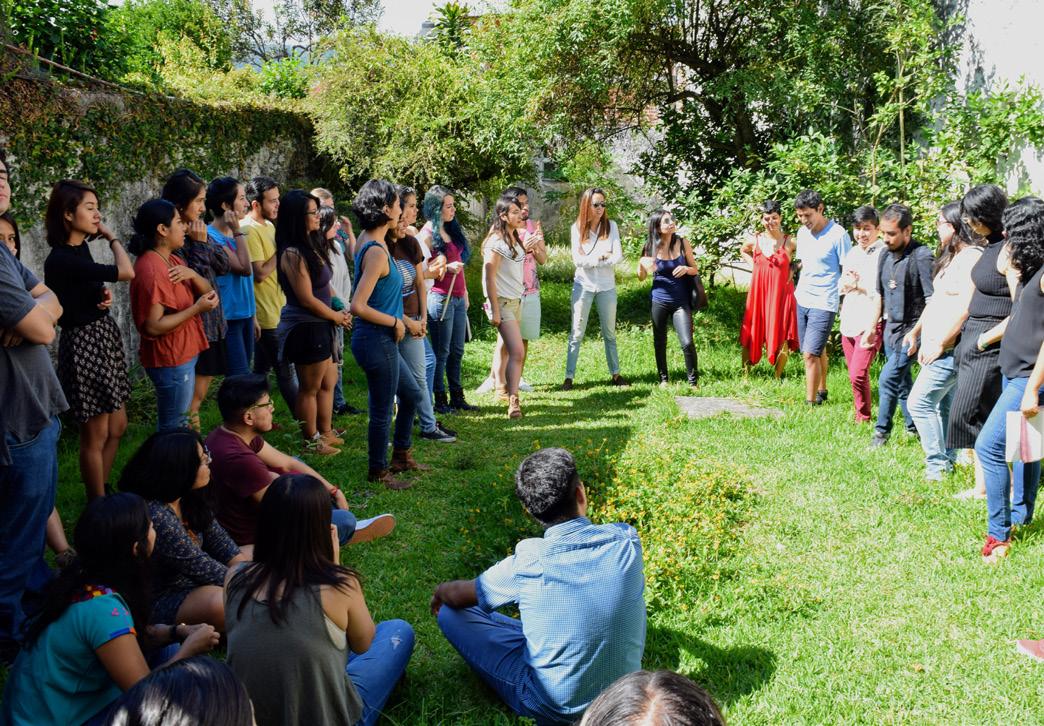
3 minute read
Roles and responsibilities
NHRF Grantees
As mentioned above, it is the responsibility of all NHRF grantees to conduct sufficient risk assessments in your own context and develop strategies of how to handle these risks effectively. Threats and security issues will not vanish by ignoring them and they can be a major hindrance for you and your organisation in carrying out your work. We have thus developed a set of questions regarding security which you and your colleagues should keep in mind and address on a regular basis: • Has your organisation made and/ or updated proper risk assessments and plans for risk mitigation?
Advertisement
• Are all relevant staff and aspects of your organisation included in these assessments and plans?
• Does your organisation have the capacity to deal with possible threats?
• Does your organisation create spaces to talk about security issues with all the staff?
• Does the organisation need capacity building or resources to make a security plan, or to take appropriate measures with regards to the current security situation?
• Is there anything in the relationship with the
NHRF which makes your organisation more vulnerable? For instance, do field visits by foreign NHRF staff make the organisation more exposed and vulnerable? Should the NHRF and your organisation establish alternative ways of communication?
In the event of actual security situations occurring, please keep in mind the following:
The NHRF would like to be informed about security incidents which have or can potentially have a negative effect on the work and working environment of your organisation and staff involved in the work
When forwarding incidents, concerns and /or reports to the NHRF about security issues concerning particular staff and/or your organisation please give a clear indication of what kind of actions your organisation would like the NHRF to take (or not take). Please be as clear as possible.
NHRF Consultants
The NHRF has consultants in a select number of countries. The role of the consultant is to be a resource person for the secretariat and grantees. The NHRF seeks to make security and protection strategies of the organisation part of the conversation during visits and meetings. Grantees may contact the NHRF consultants for guidance and support on security- and protection-related issues.
The local consultants:
• Can help grantees make an overview of what makes them vulnerable in their work and possible steps to respond to these, if needed
• Can help establish contacts with resource people/specialised organisations to help establish a security protocol
The NHRF encourages strong and honest communication with grantees in the field to ensure there are no barriers when needing to communicate about risks and security issues in general. The NHRF conducts annual seminars that incorporate workshops and sessions on security to help build capacity for grantee partners to enhance their security and protection. Photos from NHRF grantee partner seminar in Mexico 2019.
NHRF Secretariat
The NHRF has a secretariat in Oslo. Apart from grantmaking, the secretariat works in networks with other organisations and engages, to a certain degree, in advocacy efforts with other stakeholders on particular issues.
When it comes to the security and protection of you as grantees, the secretariat has different measures available for support. The following measures are outlined in the NHRF Operational Guidelines (2013):
• Offer to connect you with organisation working on protection
• Make joint actions with other donors and actors on behalf of our grantees
• Include resources to make security protocols, plans and training in the grant budgets
• Bring the issue of concern to the attention of diplomatic missions, in particular to the Norwegian Ministry of Foreign Affairs and the Norwegian government, if requested by a grantee
• Forward appeals to the attention of the
UN Special Rapporteurs
• Distribute information in Norway about cases that concern NHRF grantees.
The NHRF’s secretariat is aware that it is difficult for some organisations to fully elaborate on risks in their applications. In order to fill the gap, we will follow up with conversations either during field visits or through other forms of communication. These efforts are intended to help us better understand the risks your organisation faces and how you plan to mitigate these risks. We hope to find good ways of communicating about security in cooperation with you.






